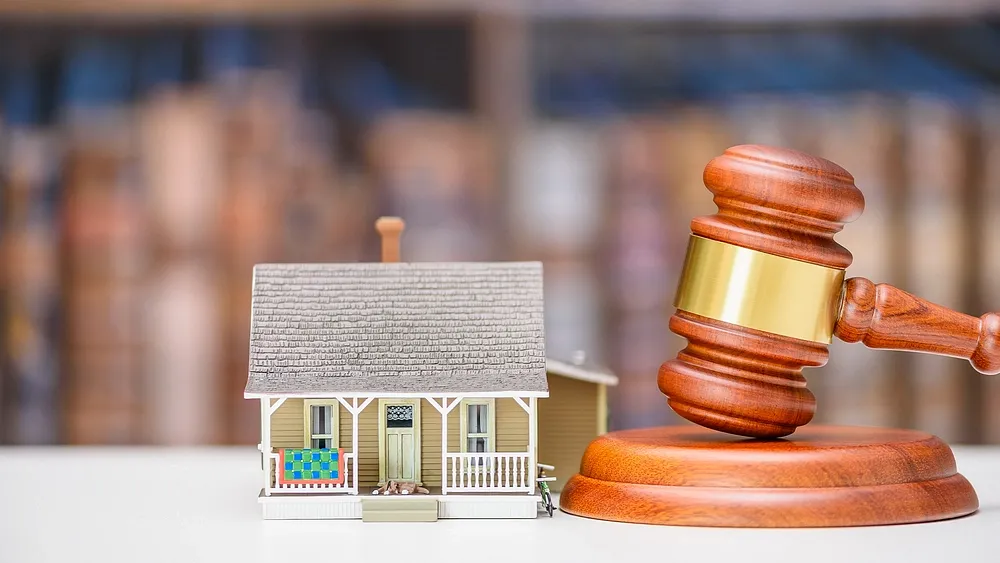Signature Collection
Explore SignatureAre you a property owner who is looking to rent out? Before renting your property, understanding your rights and responsibilities as a landlord in Dubai is crucial to safeguarding your investment, and managing properties efficiently. Being well-informed about landlord rights also enables you to swiftly address potential disputes or issues, ensuring your experience as a property owner remains stress-free and profitable.
Continue reading to gain a comprehensive understanding of your landlord rights in Dubai to ensure your property investment remains secure and profitable.
Legal Framework Governing Landlord Rights in Dubai
The landlord-tenant relationship in Dubai is primarily regulated by Law No. 26 of 2007 and its subsequent amendments. These laws provide clear guidelines for landlords, ensuring transparency, fairness, and legal compliance.
Key Regulatory Authorities
- Dubai Land Department (DLD): Oversees property registration and ownership.
- Real Estate Regulatory Agency (RERA): Ensures compliance with real estate laws, particularly thosegoverning landlord-tenant relationships.
What Landlord Rights in Dubai Do You Have?
Knowing your landlord rights in Dubai is essential to efficiently managing your property and protecting your interests. Below are some of the key rights landlords enjoy in Dubai:
Right to Timely Rent Collection
One of the primary landlord rights in Dubai includes the timely collection of rent as stipulated in the tenancy contract. Typically, tenants pay through post-dated cheques, and landlords must clearly state payment schedules within the agreement. Landlords are entitled to enforce timely payments and can pursue legal actions if tenants fail to comply. Clearly outlining payment procedures helps mitigate potential disputes and ensures smooth financial transactions.
Security Deposits
Landlords in Dubai can legally require tenants to provide a security deposit, usually equivalent to one or two months' rent. This deposit serves as protection against property damage or lease violations. It is advisable for landlords to clearly document the property's condition at the start and end of the lease to facilitate a transparent assessment for deductions, if necessary. Prompt and fair handling of security deposits helps maintain trust between landlords and tenants.
Property Maintenance and Inspections
According to Dubai law, landlords have the right to ensure their properties are maintained adequately. They can perform periodic inspections by providing reasonable advance notice to tenants. This allows landlords to promptly identify any potential maintenance issues before they become significant problems.
Regular inspections also encourage tenants to maintain the property responsibly, protecting the landlord’s investment.
Lease Renewal and Rent Adjustment
Landlords have the right to propose changes to the tenancy terms upon renewal, including adjustments to rent based on RERA’s Rental Increase Calculator. However, they must provide tenants with at least 90 days' notice before the lease expires. It's beneficial for landlords to familiarize themselves thoroughly with the Rental Increase Calculator to ensure compliance and prevent disputes.
Clear communication regarding potential changes well in advance helps maintain positive landlord-tenant relationships.
Eviction Rights
Landlords in Dubai can legally evict tenants for specific reasons such as non-payment of rent, unauthorized subletting, or misuse of the property. Evictions for personal use, sale, or significant renovations require a 12-month advance notice through registered mail or notary public.
Enforcing Lease Agreements
Clear lease agreements protect landlord rights by explicitly outlining expectations. Landlords can enforce these contracts through legal channels as guided by RERA. It's recommended to seek professional legal assistance when drafting lease agreements to ensure comprehensive coverage of all essential terms. Detailed contracts help avoid ambiguities, minimizing the likelihood of disputes.
Dispute Resolution
The Rental Dispute Settlement Centre (RDC) offers landlords a structured process for resolving rental disputes, including filing claims, hearings, and enforcing judgments. Utilizing this center can expedite dispute resolution, saving landlords significant time and resources.
Landlords are encouraged to maintain detailed documentation of all transactions and communications to effectively support their cases during proceedings.
Responsibilities of Landlords in Dubai
Landlords also have certain obligations designed to foster a balanced landlord-tenant relationship.
Respect Tenant Privacy
Landlords must respect tenants' privacy and provide reasonable notice before conducting property inspections. Typically, a 24-hour notice period is considered sufficient and respectful in Dubai. This practice ensures minimal disruption to tenants' daily routines and maintains a positive landlord-tenant relationship.
Property Maintenance Obligations
Dubai landlords are required to maintain properties in habitable conditions, addressing major repairs promptly and ensuring regular upkeep. Regular property maintenance not only safeguards the property's value but also enhances tenant satisfaction and reduces turnover. Landlords are advised to establish a routine maintenance schedule to proactively manage issues before they escalate.
Compliance with Legal Procedures
Landlords must adhere strictly to RERA's guidelines on rent increases, eviction notices, and contract modifications to avoid disputes and legal complications. Non-compliance can result in legal penalties and lengthy disputes that could significantly impact your investment. Familiarizing yourself with these regulations through official resources or legal consultation is highly advisable for all landlords in Dubai.
Security Deposit Refund
Upon lease termination, landlords must return the security deposit to tenants, minus any legitimate deductions for property damage or outstanding dues, clearly documented through check-in and check-out inspections.
Transparency and Duty of Care
Landlords must maintain transparency in dealings with tenants, providing thorough documentation on property conditions at the beginning and end of leases. Additionally, landlords are responsible for ensuring the safety and security of the property for their tenants.
By understanding and clearly implementing these rights and responsibilities, landlords can ensure their property investments in Dubai remain profitable and hassle-free.
FAQs
Common issues include non-payment of rent, unauthorized subletting, and eviction difficulties. Proper documentation and adherence to RERA guidelines can mitigate these challenges.
Register tenancy contracts through Ejari, conduct detailed tenant background checks, clearly define contractual terms, and maintain accurate records of all interactions.
No. Rent increases can only occur at lease renewal, and landlords must provide tenants at least 90 days’ written notice. All increases must align with RERA’s Rental Index.
Landlords can evict tenants for non-payment of rent, property misuse, unauthorized subletting, or for personal property use, sale, or significant renovation—each requiring appropriate notice.
Landlords must refund the security deposit at lease termination, less any deductions for damages or unpaid dues, clearly documented in inspection reports.
For more information, get in touch with us at Provident







